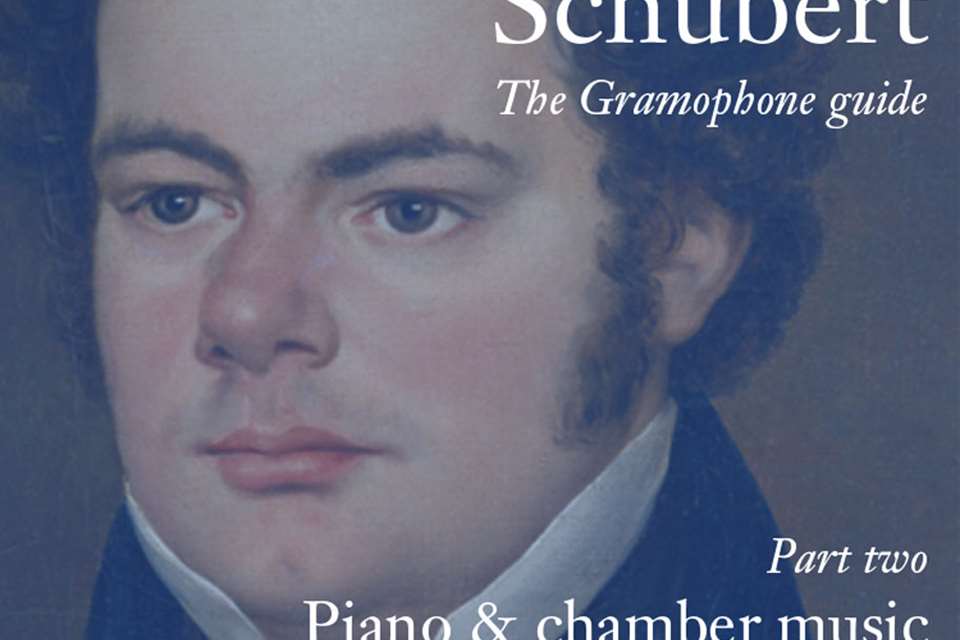The power of Schubert’s Fantasie
Stella Chen
Friday, March 10, 2023
The extraordinary work holds a particularly personal power for Stella Chen - so how did early critics get it so wrong?

'One of the composer’s least important compositions, if not positively objectionable...'
'Positively miscomposed... a new fantasia... made no appeal of any sort... the popular composer has frankly gone off the rail here.'
And perhaps the most revealing: '[The Fantasie] occupies rather too much of the time that the Viennese are prepared to devote to their aesthetic pleasures. The hall gradually emptied and your correspondent admits that he, too, is unable to say how this piece of music ended'.
It’s hard to believe today that these scathing remarks all come from reviews of the premiere of Schubert’s now-beloved Fantasie, D 934. As a lifelong Schubert lover, I was scandalized by these attacks. Even worse, further digging revealed that the failure at the premiere was not an isolated event; for over a century, the piece was condemned by performers and scholars alike. I couldn’t fathom how my single favorite work of art, revered by the musicians I respect most and written by such a celebrated composer, could provoke such scorn.
I first learned the Fantasie when I was nervously returning to the violin after a long hiatus due to an injury. Despite its fiendish difficulty, the piece seemed to have a certain vulnerability written into it that resonated with me and made me feel oddly safe learning it. My first performance of it was a cathartic experience I could not have imagined. All of a sudden, this complicated piece, with its four (or is it seven?) movements made complete sense–a deeply emotional, perilous journey that eventually ends triumphantly. The more I studied it, the more I marveled at its exquisite beauty.
People often talk about the Fantasie as one of the most difficult works in the repertoire. The opening alone is daunting to say the least: the pianist must produce a tremolo in both hands and the violinist a long sustained note, both at the softest dynamic possible, emerging out of nothingness. There is a running joke that when nervous, the violinist instead produces a tremolo in the form of involuntary up-bow staccato, and the pianist a sustained chord. It doesn’t get any easier after the opening, as the music that follows demands technical acrobatics as well as utmost sensitivity and delicacy from both players. The final Presto features four-note arpeggios that are so difficult that many editions (and even some of the great violin virtuosos of the past) opted to change the notes and play a three-note version instead.
Somehow, the Fantasie never presented itself to me as an explicitly technical hurdle, which has served me well in more than one way. As someone who quails at etudes and Paganini caprices, I’ve never found myself doing 'technical work' in my practice. On top of that, I’m a self-proclaimed extroverted introvert who cringes at outward, unabashed displays of virtuosity. Luckily, the Fantasie is far more than an exercise in violin technique. Despite its extreme difficulty and virtuosity, every note seems so perfectly composed that I find only joy in discovering the physical micro-movements and control necessary to give meaning to every note. No single note of Schubert’s is excessive; every moment, every rest, every black dot on the page is perfectly placed.
Although I participated in competitions as a child, I hadn’t really attempted any since I made the decision to enroll in a dual-degree programme for college and then sustained an injury. By the time I finished my coursework in the doctoral program at Juilliard, I decided that I would regret not participating in competitions one more time before I deemed myself too old to be doing them. Against the advice of all, I decided to programme the Schubert Fantasie as my recital round offering in the Queen Elisabeth Competition. It’s easy to imagine why so many discouraged this choice: playing a showpiece is hard enough under competition pressure, let alone such a difficult piece, with such a difficult piano part, and one that requires baring the soul completely. I agonized over the decision, but in the end I decided if I had the chance to present a work of my choosing on a stage with that much history, it just had to be the Fantasie.
I found myself in a whirlwind of touring after the competition in May of 2019 and didn’t have any time to write a dissertation. I was beginning to wonder whether I’d have to drop out of the doctoral committee altogether when the pandemic descended upon us and suddenly the decision was clear. I would get something together, and I came to a familiar conclusion: if I was going to have to write a document, it was going to have to be about the Fantasie. Learning about how poorly the Fantasie was received and how little it was recorded in its first century-and-a-half of existence not only fascinated me but made me love the piece even more.
It’s hard to describe what the Fantasie means to me. It’s my safe haven, my escape, a world with the most dangerous of perils, the darkest of pains, most exuberant happiness, and the most beautiful optimism, all in under a half-hour. It’s amazing to me that early critics complained the piece is too long. Is there any better way to spend thirty minutes?
'Stella x Schubert', Stella Chen's new album recorded with pianist Henry Kramer, is available from Platoon today, and can be listened to via the Apple Player below.











